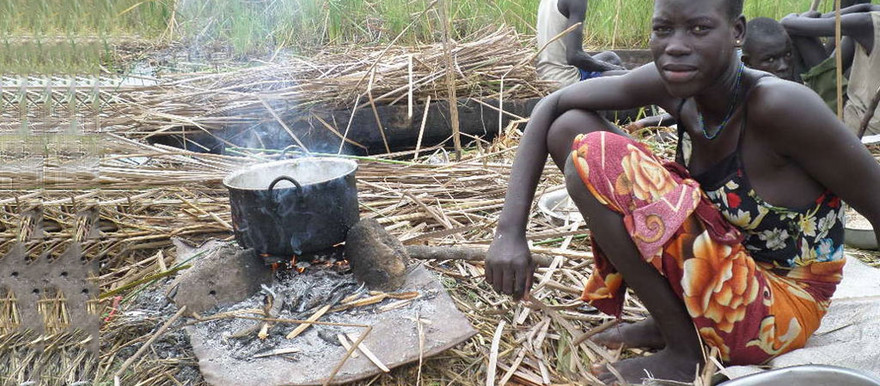Cereal prices in South Sudan have shot up nearly five-fold since early last year, making it increasingly difficult for people to get enough to eat, according to a new study by the Food and Agriculture Organization of the United Nations (FAO) and the World Food Programme (WFP).
The two UN agencies said that the increasing prices are caused by conflict and unfavourable rains.
“South Sudan is facing a deadly blend of conflict, economic hardship and poor rains. Together, they are worsening a hunger gap that we fear will force more people to go hungry and increase malnutrition,” said WFP Country Director Joyce Luma.
WFP and FAO reported the findings after carrying out a crop and food security assessment.
“Food insecurity has spread to areas previously considered relatively stable, highlighting the cumulative impact of conflict, economic downturn and climactic shocks,” said Serge Tissot, FAO Representative in South Sudan.
In a press statement, WFP explained that the Bahr el-Ghazal and Equatoria regions have suffered from unfavourable rains that have contributed to the cereal shortfall. WFP also said insecurity caused disruptions of agricultural activities.
“Food prices [are] soaring as markets collapse,” reads the press statement.
The statement also highlights that the soaring cereal prices are driven by a combination of the sharp devaluation of the local currency and higher transport costs. The lack of traders’ access to dollars also makes it difficult for them to import food.
“The number of wholesale traders present in main markets and the level of their food stock have steadily declined throughout the year as a consequence of insecurity, low purchasing power of consumers and difficult access to foreign exchange to buy imports,” says the report.
In terms of transportation, links between cereal-producing areas – mostly in the Equatoria and Bahr el-Ghazal states – and main markets have become “extremely difficult” due to heightened insecurity, a proliferation of roadblocks and exorbitant ad hoc taxes levied on commercial transporters along major trade routes, according to the research.
WFP and FAO say that situation is likely to improve if the security situation improves across the country. They also recommend that aid organizations provided targeted food deliveries and livelihood assistance to “very vulnerable households,” especially in parts of Greater Upper Nile and Eastern Equatoria.




